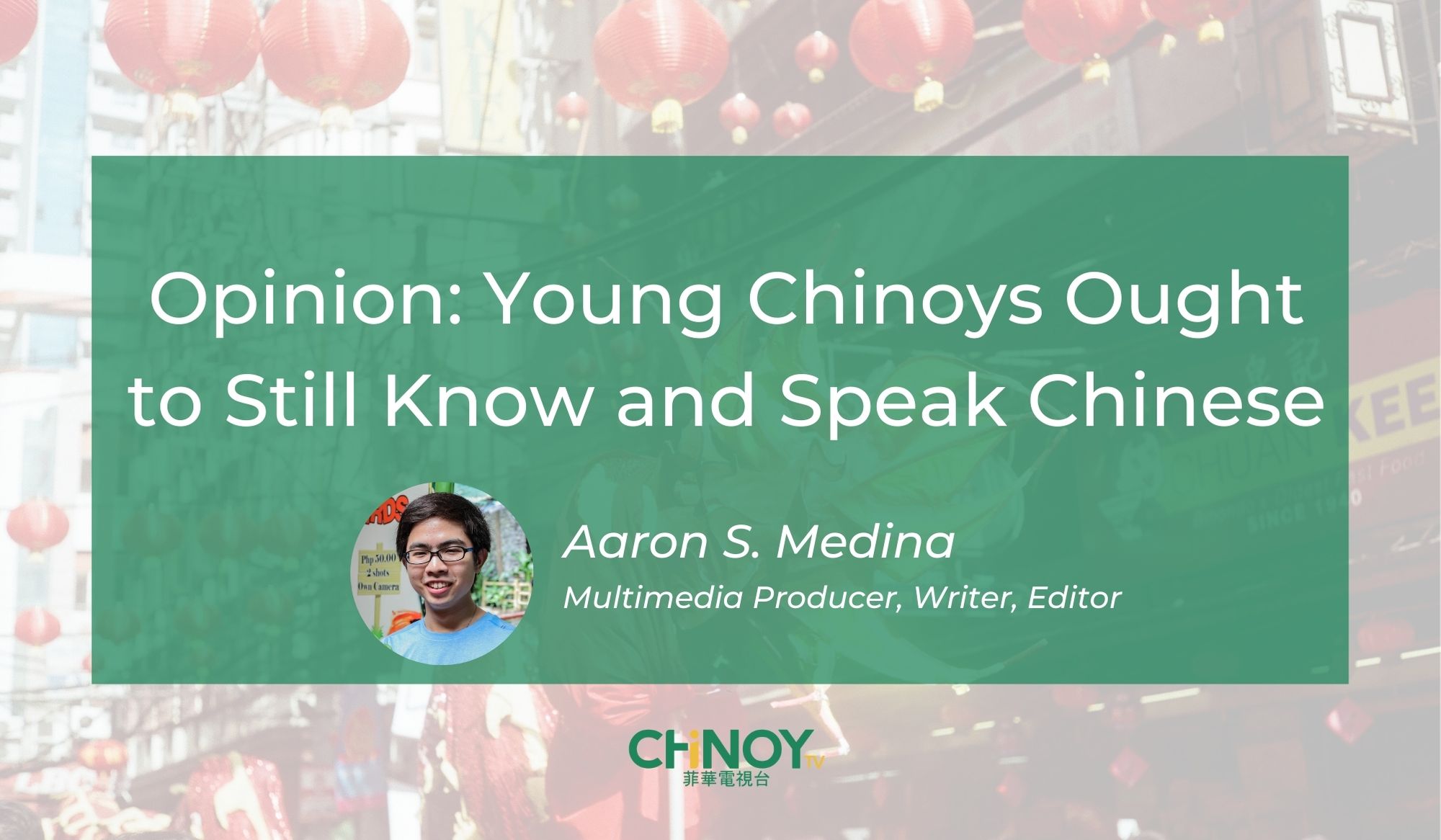Opinion: Young Chinoys ought to still know and speak Chinese

In an increasingly globalized world, the line between cultures gets blurred. The newest trends, the latest Netflix shows, and the most modern technology from around the world suddenly all seem to be within reach, within a single click, and a stable internet connection.
Such connectivity brings a lot of good. However, the risk of losing one’s own identity seems to also be a possibility; one only needs to observe the fact that Minnan (more commonly known as “Hokkien” or “Fookien”) has been dying among Chinese-Filipinos.
Just to be clear, this opinion piece doesn’t seek to condemn. It’s great that young Chinoys, in general, have been better at speaking English, for example. Instead, it seeks to ask the following: in this globalized world, is it still worth it for young Chinoys to know Chinese? It argues a resounding yes. Here are a couple of reasons why.
Knowing another language is always advantageous
Learning an extra language allows you to communicate with and understand more people.
Nowadays, Minnan doesn’t have much of an influence compared to Mandarin Chinese, but knowing it does allow one to communicate with older Chinoys. Couple that with Mandarin, a more universal Chinese tongue, and the number of people one will be able to communicate with is far more vast than knowing just one of the Chinese tongues or none at all.
Another interesting community that doesn’t get much attention is the Cantonese-speaking Chinoy community. Whereas those who speak Minnan likely came from China’s Fujian province (Xiamen, Jinjiang, and others), those who speak Cantonese are likely from the Guangdong province (Hong Kong, Guangzhou, and others). Greater awareness must be shown to this community.
Appreciation of roots
More than just having the ability to communicate with more people, however, knowing Chinese (whether it’s Minnan, Mandarin, Cantonese, or other Chinese tongues) does connect a Chinoy to his or her roots.
The thing is, speaking a language is so much more than it may seem. It’s not just about the “ability to speak and write in Chinese to please my ancestors and future in-laws”. They result from a particular culture, place, and circumstance.

Many modern Chinese characters find their origin in actual things and places in nature. These give us a glimpse of the ancient Chinese: a deeply connected to nature and observant type of people. Image from The Daily China
So, as seen, everyday Chinese characters actually come with rich histories, and they tell us quite a lot about the past.
However, languages also tell us a lot about the present. Every year, new terms become part of our everyday usage, words that give a picture of what society is like. For example, many now use the term “google it” as synonymous with “look it up on the internet”. Doesn’t this capture an aspect of human society today?
The takeaway
Culture changes. So does language. That’s inevitable. The fact of the matter is, however, whatever they’ll be speaking a thousand years from now will have evolved from what we have at present.
So let us appreciate the languages that we have at the moment. Why? Because language bridges the past, the present, and the future; they tell us a thing or two about the past and they will tell people generations from now what we were like.
So, even in this globalized world, let us not lose sight of our Chinese language, for this connects us not just to our ancestors, but also to those who’ll come generations from now.
jjj
The author of this article:

An accomplished young Chinese Filipino writer and media personality, Aaron S. Medina is associated with the Philippine Daily Inquirer, the Ateneo de Manila University Chinese Studies Program, the Philippine Association for Chinese Studies, and CHiNOY TV. He has a passion for truth, justice, and Pokémon, too! Follow him on Facebook: https://www.facebook.com/aaron.joseph.s.medina/












